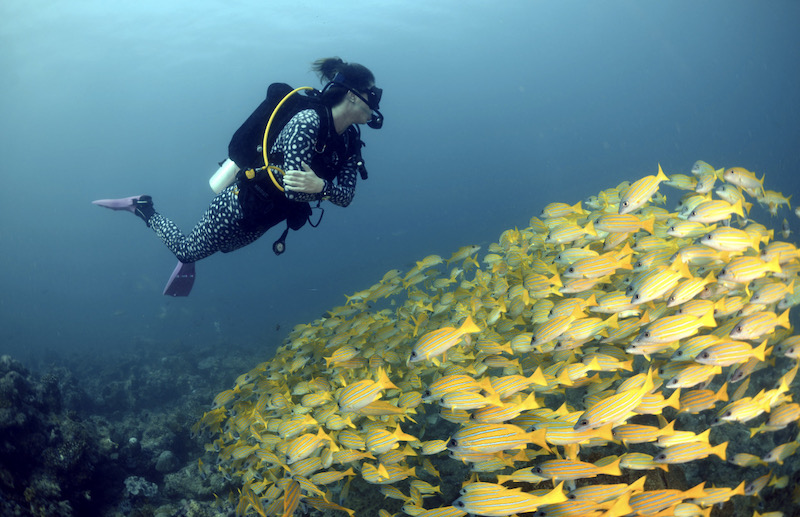How safe is scuba diving
Scuba diving is a fun and exciting activity but like most other sports, there are still some risks involved. Why do people still engage in sports despite the risks? Scuba diving and other outdoor sports allow people to tune out from everyday stressors and tune in to nature. Going under the waves is a perfect escape from the hectic world we live in. The ocean is a peaceful world teeming with beautiful marine life. No wonder divers are willing to take risks just to explore this amazing underwater realm.
Make diving safer
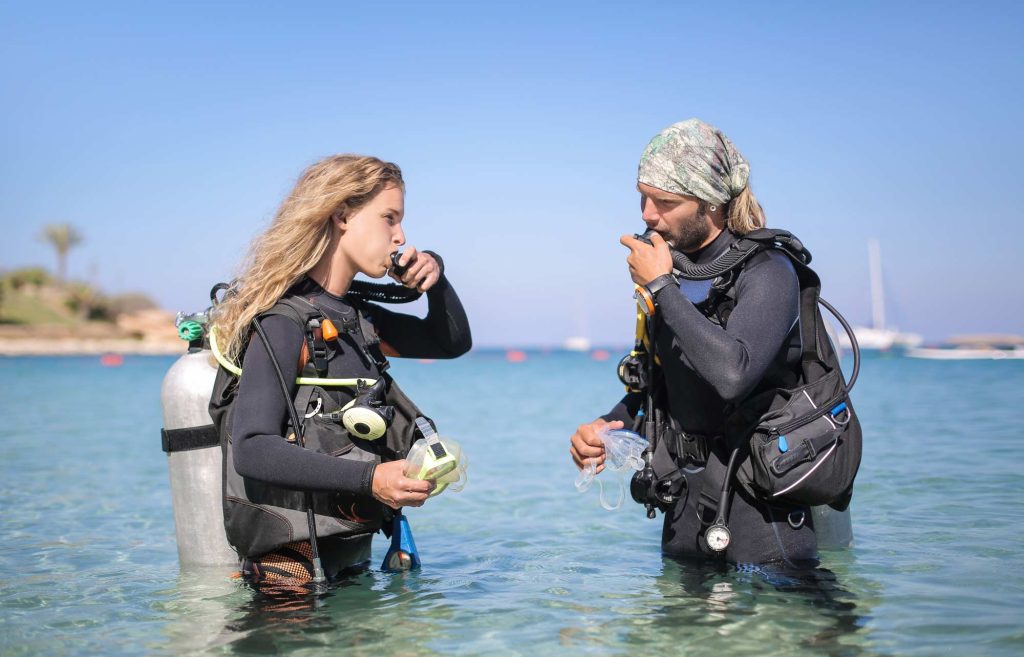
Although you cannot eliminate the risks, you can make your diving experience safer through the following …
1. Become a certified diver
It’s important to earn your dive certification from a licensed dive operator before you go on a diving trip. When you become a certified diver, you learn the necessary knowledge and skills that you need in various diving environments and situations. Being trained by a professional dive instructor will make diving trips safe for you and your dive buddy. If you plan to become a certified diver in the UAE, get in touch with Nemo Dive Center to know about our scuba diving Dubai prices.
2. Make sure you’re fit to dive
When you sign up for a dive course, you’ll be asked to fill out a medical questionnaire to determine if you’re fit to dive. Answer the questionnaire honestly. If you’re generally in good health, then you won’t have any problem.
If you’re already a certified diver, avoid diving when you’re feeling under the weather. Don’t dive when you have a headache, cold, cough, or if you have hangover. Always prioritize safety over the desire to explore the sea. You can always reschedule your dive when you’re feeling much better.
3. Check your gear before your descent
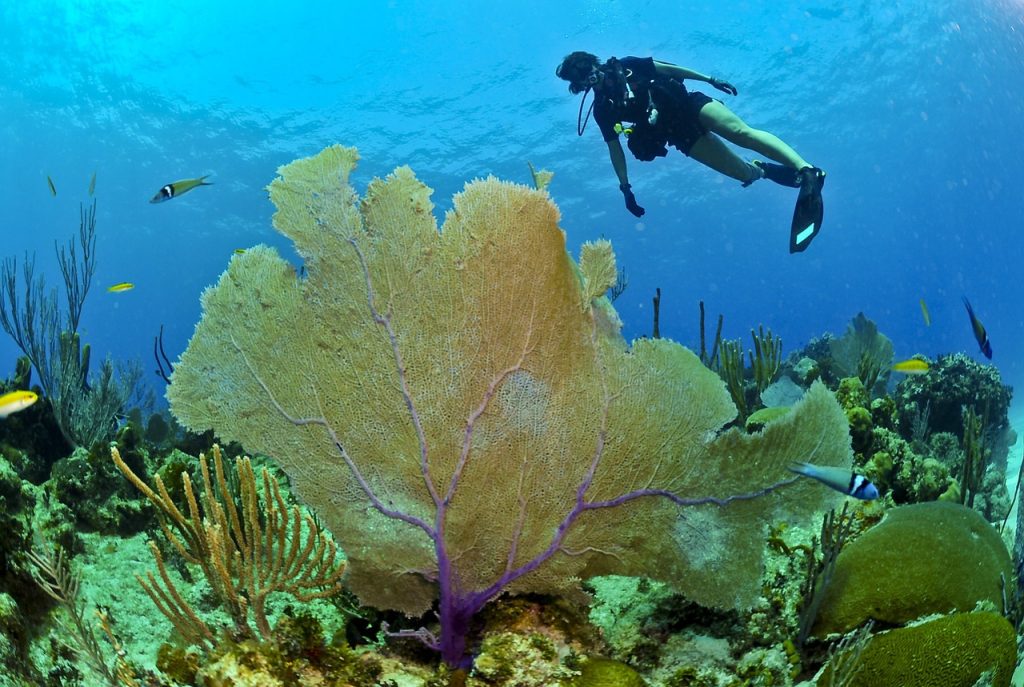
Equipment is a crucial part of safety. Make it a routine to check your equipment before you dive and always perform a buddy check. You must know how to use your gear and make sure everything is working properly. For instance, it is important that you’re aware of your quick release weight system and how to deploy your delayed surface marker buoy. In addition, you should know the location of all the dump valves on your BCD. Prior to your dive, remember to calibrate your dive computer to your air mix. Charge all battery-powered gear such as your primary and secondary dive lights.
4. Never hold your breath
Breath holding underwater is a big no-no because it can lead to serious injury to the lungs and even death. When you descend, your lungs contract and when you ascend, your lungs expand.
There’s no problem as long as you continue breathing normally underwater because excess air escapes. However, if you hold your breath during ascent, pressure rises in the organ, which can make the lung walls rupture. This is very dangerous because it can result in serious damage to the organ.
5. Equalize your ears as you descend
When you descend, equalize your ears frequently to avoid injury to your inner ear. Do not wait to feel pain before equalizing.
6. Improve your buoyancy control
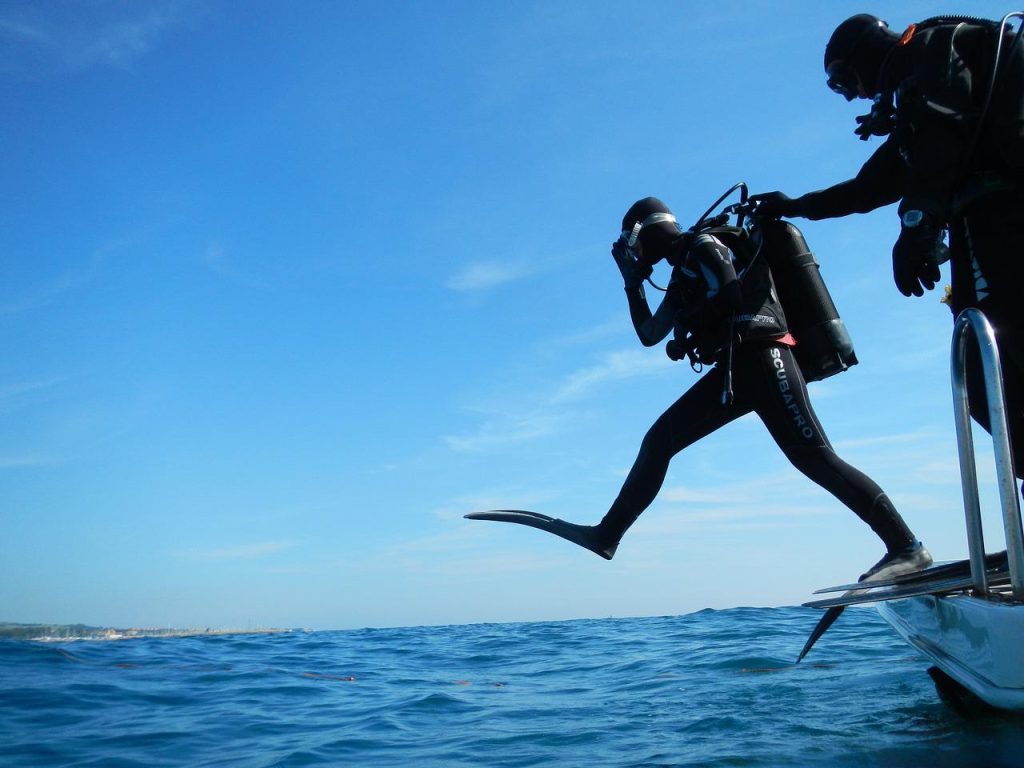
Keep working on your buoyancy control so that you can improve air consumption and maneuver better underwater. When you have good buoyancy control, it’s easier to control your movements and help conserve the marine environment.
7. Ascend slowly
When you’re finished diving, go back to the surface slowly and make safety stops to allow the nitrogen in your system to dissipate. If you come up fast, the nitrogen will be forced into the bloodstream which can cause decompression sickness.
8. Keep an Eye on Your Air Gauge
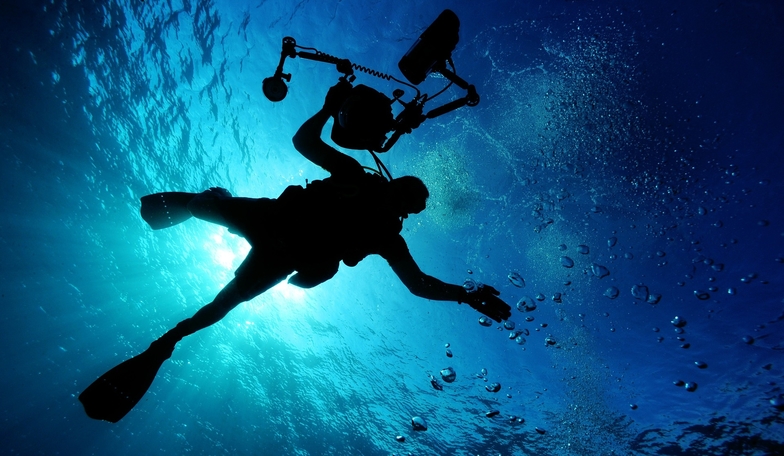
It is your responsibility to monitor your own air consumption. Always be mindful of when your tank is half full and quarter full so you can safely plan your way back to the surface.
9. Dive within your limits
Always dive within the scope of your knowledge, skills, and training. Some marine environments, depths, and conditions may require higher certifications. When you risk diving in conditions and situations beyond your limit, you can endanger yourself and your buddy. Prioritize safety to avoid underwater accidents. If you want to sign up for specialty dive courses, get in touch with us to know about our scuba diving packages.
10. Respect marine life
As a diver, the opportunity of interacting closely with amazing marine life is an exciting experience but keep in mind that we are mere visitors to the underwater world. Practice responsible interactions with marine life. Do not feed, touch, chase, or do things that can hurt or stress marine creatures. In some cases, these actions can put a diver’s safety at risk.
